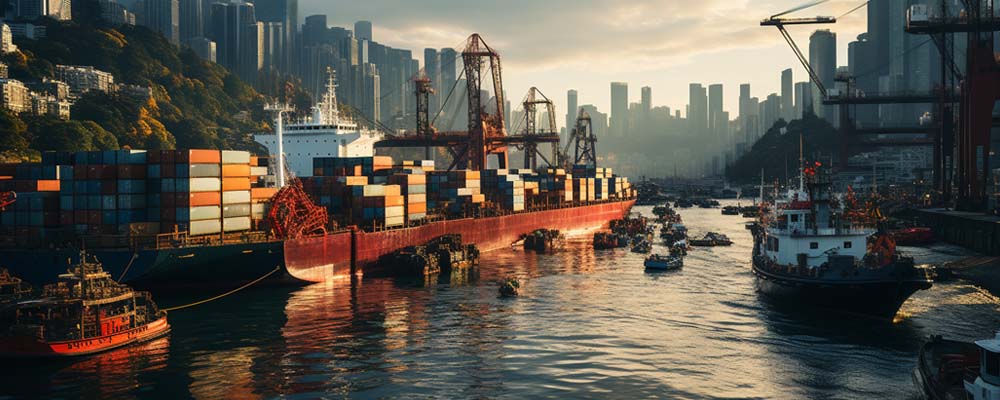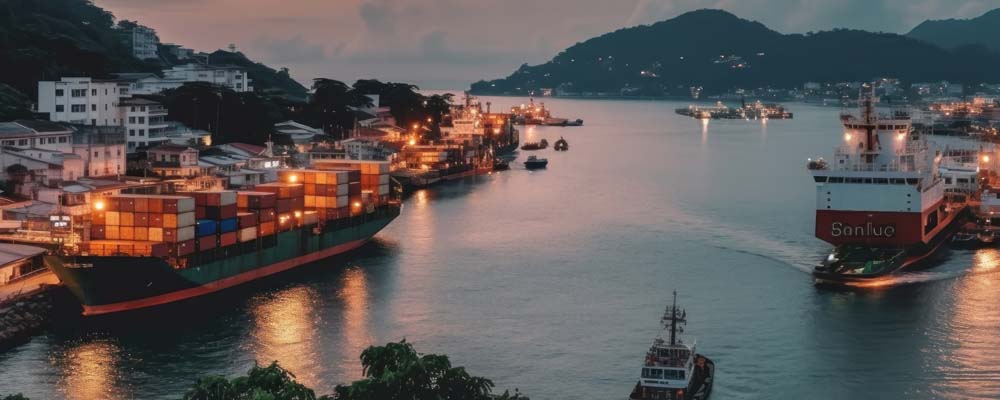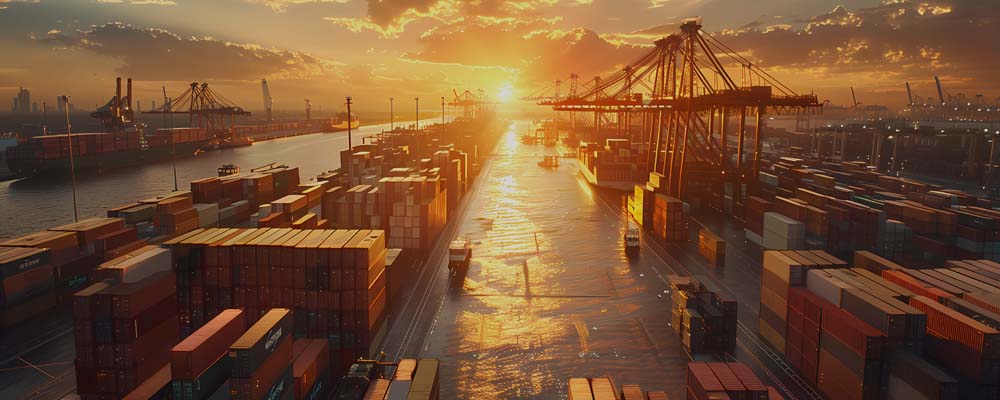
Shipping to Brazil? Knowing the country’s major ports inside and out is crucial for smooth logistics operations. Whether you’re a freight forwarding company, a customs broker, or an e-commerce business, understanding these ports can streamline your process and save you time and money.
In this blog post, we’ll explore the top 5 major ports in Brazil, their significance, and why having this knowledge can be a game-changer for your business. By the end, you’ll have a comprehensive understanding of Brazil’s key maritime gateways and how they can benefit your operations.
Top 5 Major Ports in Brazil
1. Port of Santos
The Gatekeeper of South America
The Port of Santos is not only Brazil’s largest port but also one of the busiest in Latin America. Located in the state of São Paulo, it handles a wide range of cargo, including coffee, sugar, and automobile parts.
With its state-of-the-art infrastructure, the Port of Santos is equipped to handle large volumes of both bulk and containerized cargo. This makes it a versatile port, capable of accommodating diverse shipping needs.
The port’s strategic location near industrial and agricultural hubs in São Paulo enhances its importance. Efficient rail and road connections further extend its reach, making it a go-to port for many businesses.
2. Port of Paranaguá
The Agricultural Powerhouse
Situated in the state of Paraná, the Port of Paranaguá is a significant hub for agricultural exports. It’s particularly known for handling large volumes of soybeans, corn, and poultry.
The port boasts advanced grain-handling facilities and a deep draft, allowing it to accommodate large vessels. This makes it an ideal choice for exporters of bulk agricultural products.
Given its specialization, the Port of Paranaguá is a key player in Brazil’s agricultural sector. Its efficiency in handling bulk goods can save businesses considerable time and effort.
3. Port of Rio de Janeiro
The Versatile Urban Hub
The Port of Rio de Janeiro is located in one of Brazil’s most iconic cities. It handles a variety of cargo, including petroleum, chemicals, and consumer goods.
One of the port’s standout features is its proximity to Rio’s bustling metropolitan area. This makes it a convenient option for businesses looking to distribute goods quickly within the city and its surroundings.
Additionally, the port offers specialized terminals for liquid bulk and general cargo, making it a versatile facility capable of handling different types of shipments.
4. Port of Itajaí
The Rising Star
The Port of Itajaí, located in the state of Santa Catarina, has seen rapid growth in recent years. It’s becoming increasingly popular for handling containerized cargo.
One of the port’s strengths is its modern infrastructure, which includes advanced container terminals and efficient cargo-handling equipment. This makes it well-suited for businesses involved in international trade.
The port’s strategic location near industrial areas adds to its appeal. Efficient logistics and transport connections make it a reliable choice for importers and exporters.
5. Port of Suape
The Industrial Giant
Located in the state of Pernambuco, the Port of Suape is a key industrial port. It handles a wide range of cargo, including chemicals, electronics, and textiles.
The port’s infrastructure is designed to support industrial activities, with specialized terminals for various types of cargo. Its deep-water facilities can accommodate large vessels, making it a crucial hub for industrial goods.
One of the standout features of the Port of Suape is its integrated logistics system. This includes efficient road and rail connections, making it easier for businesses to transport goods to and from the port.
Benefits of Understanding Major Ports
Enhanced Efficiency
Knowing the strengths and capabilities of Brazil’s top ports can help you choose the most suitable port for your needs. This can lead to enhanced efficiency in your logistics operations.
Efficient port selection can reduce transit times and lower shipping costs. It can also minimize the risk of delays, ensuring that your goods reach their destination on time.
By understanding the unique features of each port, you can make informed decisions that align with your business goals and logistics strategy.
Cost Savings
Selecting the right port can lead to significant cost savings. Ports that specialize in handling certain types of cargo can offer more competitive rates and better service.
For example, using the Port of Paranaguá for agricultural exports can reduce handling costs and improve turnaround times. Similarly, the Port of Itajaí’s modern container terminals can enhance efficiency for businesses involved in international trade.
Cost-effective port selection can contribute to your bottom line, making your logistics operations more profitable.
Better Risk Management
Understanding the capabilities and limitations of Brazil’s major ports can help you manage risks more effectively. This includes mitigating the risk of delays, damage to goods, and other logistical challenges.
By choosing the right port for your needs, you can minimize the impact of potential disruptions. This can lead to smoother operations and greater reliability for your customers.
Effective risk management can enhance your reputation and build trust with your clients, contributing to long-term success.
FAQs About Ports in Brazil
What types of cargo do Brazilian ports handle?
Brazilian ports handle a wide range of cargo, including agricultural products, consumer goods, industrial materials, and petroleum. Each port has its specialization, making it important to choose the right port based on your cargo type.
How do I choose the right port for my needs?
Choosing the right port depends on several factors, including the type of cargo, proximity to your suppliers or customers, and the port’s infrastructure. Understanding the unique features of each port can help you make an informed decision.
Are there any specific regulations for shipping to Brazil?
Yes, Brazil has specific regulations for shipping, including customs procedures and import/export requirements. It’s crucial to understand these regulations thoroughly to ensure compliance and smooth operations.
 Conclusion
Conclusion
Navigating the complexities of shipping to Brazil becomes more manageable when you understand its major ports. The Port of Santos, Paranaguá, Rio de Janeiro, Itajaí, and Suape each offer unique advantages tailored to different logistics needs.
By leveraging the strengths of these ports, you can enhance efficiency, reduce costs, and manage risks more effectively. This knowledge positions your business for success in the competitive world of international trade.
Explore more about Brazil’s major ports and discover how they can benefit your operations. For personalized advice and insights, reach out to us.





 Conclusion
Conclusion



